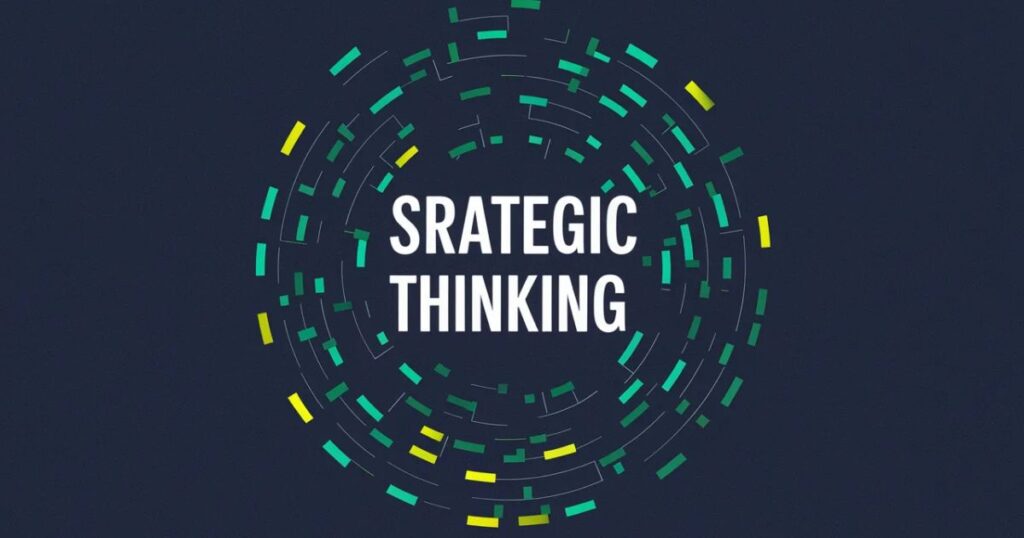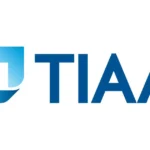Pursuing a Master of Business Administration (MBA) is a significant investment of time, money, and effort. The rewards can be immense – equipping you with a diverse skillset that propels your career to new heights.
In today’s competitive business landscape, an MBA from a top institution can be a game-changer, providing you with the tools to tackle complex challenges and emerge as a well-rounded leader.
What Is an MBA Program?
A Master of Business Administration (MBA) is a graduate degree program designed to provide comprehensive business education and management training.
Typically spanning two years, an MBA program offers a unique blend of broad and specialized coursework. The first year focuses on core concepts like accounting, economics, and analytics, building a solid foundation. The second year delves into advanced, specialized courses tailored to your interests and career goals.
The complementary nature of this curriculum equips you with a deep understanding of business fundamentals while allowing you to hone specific expertise.
This powerful combination prepares you for success in various industries and roles, from entrepreneurship to corporate leadership.
How Long Is Business School?

Most MBA programs last for two years, but some business schools offer faster options — especially those outside the United States.
Full-time students can complete their MBA in just one year, while part-time students can take a few years. Both on-campus and online MBA programs exist, but studies show that in-person MBAs are more valuable.
Attending classes in-person makes it easier to meet new people and build connections, which are some of the biggest benefits of an MBA program.
Read More : What You Can Do With a Business Degree?
6 Skills You’ll Learn in Business School
While the specific coursework may vary among institutions, an MBA program from a reputable business school will cultivate a diverse set of skills essential for professional growth and career acceleration.
1. Technical Skills
One of the cornerstone components of an MBA program is the development of technical skills. These hands-on, practical skills equip you with the tools to analyze financial statements, craft data-driven marketing strategies, streamline supply chain processes, and navigate complex operational challenges. You’ll gain proficiency in areas such as:
- Financial analysis: Understanding financial statements, using ratios and formulas to assess a company’s financial health.
- Data analytics: Gathering, processing, and analyzing data using statistical techniques to drive informed business decisions.
- Market research: Conducting comprehensive market studies to identify opportunities, threats, and consumer trends.
Mastering these technical skills is crucial for providing tangible value to your organization and setting the stage for future career growth.
2. Leadership and Management Skills

Effective leadership and management are vital for driving organizational success. An MBA program prioritizes cultivating these critical soft skills, empowering you to become a well-rounded, influential leader. Some key areas of focus include:
- Emotional intelligence: Understanding and managing your emotions, as well as recognizing and influencing the emotions of those around you.
- Communication: Clearly and effectively communicating vision, goals, and action items to align teams and stakeholders.
- Empowering others: Fostering an environment where team members are motivated, engaged, and empowered to leverage their strengths.
- Self-awareness: Developing a deep understanding of your leadership style, strengths, and areas for improvement.
- Financial literacy: Making data-driven decisions that directly impact the company’s bottom line.
- Resilience: Navigating change and tumultuous situations with agility, flexibility, and a calm, composed demeanor.
Through various leadership development opportunities, case studies, and practical exercises, you’ll refine these vital skills, positioning yourself as a capable, well-rounded leader.
3. Entrepreneurial Skills
For those with aspirations of launching their own innovative ideas or new ventures, an MBA program provides a comprehensive toolkit for entrepreneurial success.
From identifying business opportunities to sustaining a thriving enterprise, you’ll develop skills for every stage of the entrepreneurial journey, including:
- Market opportunity identification and validation
- Conducting market research and consumer analysis
- Developing and refining a business idea or product
- Building and leading a high-performing team
- Navigating investor relations and securing funding
- Implementing growth strategies and scaling operations
Whether you envision starting your own company or infusing an entrepreneurial mindset into an existing organization, an MBA will equip you with the necessary skills to turn your vision into reality.
4. Strategic Thinking Skills

In today’s rapidly evolving business landscape, the ability to think strategically is a highly coveted asset. An MBA program cultivates this crucial skill by providing you with a big-picture perspective and the tools for effective strategy formulation. You’ll learn to:
- Understand pricing structures and value creation mechanisms
- Analyze market trends and macroeconomic factors
- Leverage data analytics for informed decision-making
- Develop and execute long-term, sustainable business strategies
By mastering strategic thinking, you’ll be better equipped to navigate complex scenarios, identify opportunities, and drive organizational success.
5. Empathy & Global Perspective
In an increasingly interconnected world, successful business leaders must possess cultural understanding and the ability to navigate international business environments.
An MBA program fosters these critical skills by exposing you to a diverse student body and a global curriculum. You’ll:
- Develop empathy and the ability to understand diverse viewpoints
- Cultivate a global mindset and appreciation for different cultures
- Learn to effectively communicate and collaborate across borders
- Gain insights into international business practices and regulations
This exposure to diverse viewpoints and global perspectives will not only broaden your horizons but also equip you with the tools to thrive in multinational organizations or ventures.
6. Integrative Problem-Solving
One of the most valuable skills you’ll develop in an MBA program is integrative thinking – the ability to approach complex challenges from multiple angles and synthesize diverse perspectives. Business problems rarely exist in isolation; they often involve intricate, interconnected factors spanning various disciplines.
Through case studies, collaborative projects, and real-world scenarios, you’ll learn to tackle multi-faceted challenges by:
- Considering the impacts and implications across different business functions
- Integrating insights from various stakeholders and subject matter experts
- Developing holistic, innovative solutions that address the problem’s complexities
This integrative problem-solving approach is highly sought after in today’s business world, where leaders must navigate intricate, multidimensional challenges with agility and creativity.
How Can the Skills Gained from an MBA Benefit Your Career?

The skills you develop in a top MBA program are invaluable assets that can propel your career to new heights. While the technical skills you acquire will prove immediately applicable in your first post-MBA role, the true power of an MBA lies in the soft skills you cultivate.
As you progress in your career, skills like leadership, strategic thinking, and integrative problem-solving will become increasingly valuable.
These skills will set you apart as a well-rounded professional capable of tackling complex challenges and driving organizational success.
Take, for example, the case of Sarah, a recent MBA graduate from a prestigious business school. Upon joining a Fortune 500 company, Sarah’s technical skills in financial analysis and data analytics allowed her to make an immediate impact, streamlining processes and driving cost efficiencies.
As she advanced into managerial roles, her leadership skills – honed through various team projects and case studies during her MBA – became instrumental in building and motivating high-performing teams.
Her ability to communicate vision, foster collaboration, and empower her team members enabled her to drive successful cross-functional initiatives and deliver outstanding results.
Furthermore, Sarah’s strategic thinking capabilities, developed through rigorous coursework and exposure to real-world case studies, positioned her as a valuable asset in the company’s long-term planning and strategy formulation efforts.
As Sarah’s career progressed, her empathy, global perspective, and integrative problem-solving skills became increasingly valuable assets.
She was able to navigate complex challenges, consider diverse viewpoints, and develop holistic solutions that drove innovation and growth within the organization.
Sarah’s story illustrates how the well-rounded skillset cultivated through an MBA program can unlock a world of career opportunities, enabling graduates to make a lasting impact and ascend to leadership roles across industries.
Making the Most of Your MBA Experience
While an MBA program equips you with a powerful toolkit, the true value lies in how you leverage these opportunities for personal and professional growth. To maximize the benefits of your MBA journey, consider the following strategies:
- Prepare for the rigorous academics: An MBA program is intellectually demanding, so it’s crucial to be well-prepared. Consider taking preparatory courses like Harvard Business School Online’s Credential of Readiness (CORe) program, which covers essential business concepts in areas like accounting, analytics, and economics.
- Enter with clear goals and an open mind: Reflect on your personal and professional aspirations, but remain open to new perspectives and opportunities that may arise during your MBA journey. A growth mindset and willingness to learn and adapt will be invaluable assets.
- Actively participate and network: Engage fully in classroom discussions, collaborative projects, and extracurricular activities. Build meaningful connections with your diverse peers, professors, and industry professionals – these relationships can lead to valuable insights, mentorship, and future opportunities.
Conclusion
An MBA from a top business school provides invaluable skills. You gain technical abilities like financial analysis and data analytics.
But you also develop leadership, strategic thinking, and problem-solving expertise. The MBA experience allows you to grow professionally and personally.
Take advantage by preparing in advance, setting goals, getting involved, and applying what you learn. With an open mindset and hard work, an MBA can accelerate your career in amazing ways.
FAQs
What does Harvard Business School teach you?
Harvard Business School teaches a comprehensive set of business skills including finance, marketing, leadership, strategy, and operations through a rigorous case-based curriculum and immersive learning experiences.
What skills do you need for MBA students?
Key skills needed for MBA students include analytical thinking, problem-solving, communication, teamwork, time management, and the ability to handle intense workloads and multitask effectively.
What are the benefits of MBA?
The benefits of an MBA include gaining advanced business knowledge, developing leadership and management skills, expanding professional networks, increasing career opportunities and earning potential, and fostering personal growth.
What does MBA degree mean?
An MBA (Master of Business Administration) degree is a graduate-level program that provides comprehensive training in various business disciplines, preparing students for leadership roles in diverse industries and organizations.










